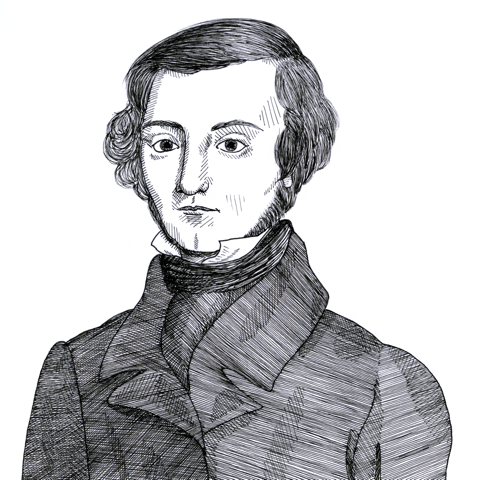Liberty Matters
Le sentiment de l’égalité

I would like to add a few remarks on the notion of equality in Tocqueville. As James Schleifer reminded us in the recently published The Chicago Companion to Tocqueville’s Democracy in America (2012), the concept of equality of conditions is better described as a “package” of many equalities. Among other things, equality of conditions is linked to the concept of the democratic social state (état social) in America, a key notion analyzed in the first part of volume one of Democracy in America. Democracy, Tocqueville wrote in a note, constitutes the social state while the principle of popular sovereignty refers to the political rule. Equality of conditions also connotes a certain set of mores and egalitarian attitudes and beliefs along with a deep “sentiment of equality” and individual dignity. Democracy is an eminently fluid society in which wealth is no longer fixed forever in the hands of certain families and in which individuals constantly climb and descend on the social ladder; it implies an open form of society in which everyone believes in his or her power to succeed. All people point to a shared form of democratic education and a strong conviction of equality, which are as important as social mobility and the constant circulation of wealth and property in democratic societies.
Why do I insist on all this? Mainly because I think it is important not to lose sight of equality as a package, or, to put it differently, it is important to stress the existence of several different meanings of equality (beyond economic equality). It can be argued that in spite of the rise of economic inequalities in contemporary America, the culture and mores of society remain egalitarian. Our lifestyles are still egalitarian, as are our ideas, norms, and conventions. The psychological dimension of equality, that is, the unshakable conviction in the worth of equality, is a principle as widely accepted as the doctrine of popular sovereignty. Tocqueville seems to have been quite prescient in insisting on the importance of what he called le sentiment de l’égalité. The real danger, I would add, is when the latter is being eroded and people no longer endorse it. Fortunately, we probably are far from that point even if we live in an age of increasing economic inequality.
Copyright and Fair Use Statement
“Liberty Matters” is the copyright of Liberty Fund, Inc. This material is put on line to further the educational goals of Liberty Fund, Inc. These essays and responses may be quoted and otherwise used under “fair use” provisions for educational and academic purposes. To reprint these essays in course booklets requires the prior permission of Liberty Fund, Inc. Please contact oll@libertyfund.org if you have any questions.